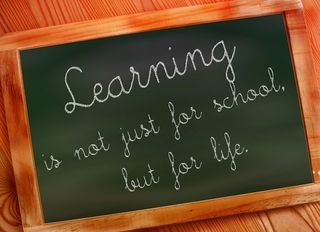Career
Is That Perfect College Really Worth It?
Development of skills takes a back seat to getting in to college.
Posted May 16, 2016

According to NPR, thousands of kids accepted to colleges are anxiously hanging out on wait lists. Getting into the “best” college pervades parents’ concerns and a child’s life. Life for the parent and child is dictated by creating a resume of top grades and stellar extracurriculars starting in kindergarten - or by getting into the “top” preschool, for some.
College obsession leads to bad understanding of child development and the real needs of learning for college and life.The idea of matching a child’s natural skills, academic strengths and interests to a college isn’t recognized as making sense.
An article in the Washington Post by Valerie Strauss (April 26, 2014) shows this obsession hitting a new high or low, depending on how you think of it. “Kindergarten show canceled so kids can keep studying to become ‘college and career ready.’ Really.” http://wapo.st/1VE1kqQ Many school districts have taken toys out of kindergarten classrooms in favor of worksheets, replaced first grade class trips with study hall.
Actually, children learn concepts, thinking skills and problem solving through hands-on play. They don’t learn from screens and worksheets. They learn about gravity as toddlers by dropping things; they learn concepts like “over” and “under” playing on the playground.
Children develop creativity and critical thinking through exploration. Children learn social skills and social language skills by playing together, negotiating, sharing, and solving conflicts.
According to TC World, a business newsletter, in an article by Hansjoerg Schuetz (June, 2011) http://bit.ly/23V3rWQ, acquiring social skills is a vital key to professional success. Employers cite verbal interpersonal communication skills as the most important candidate skills in the National Association of Colleges and Employers “Job Outlook” report, February 2016 http://bit.ly/24t3OLi.
There’s a particular loss in cancelling that end of year show. Participating in theater, children learn to take different perspectives on the same situation. They learn self-presentation skills and gain confidence. Social skills, verbal communication, cooperation, problem solving, self-presentation and self-confidence ARE “college and career ready” skills.
Many parents undermine career readiness by organizing, structuring or even doing children’s work for them (sometimes via tutors). When these students get to college, they have no idea how to function on their own. Many flounder.
School administrators are responding to two demands, from those rating their schools and from parents. School ratings are based on exams. Doing well on exams usually requires memorization (vocabulary, math, how to structure an expository essay).
Anticipating the competition for college, parents push for academic achievement. They want those grades, packed with AP classes, even if it means managing the load themselves. Life requires creativity, problem solving, independence and interpersonal abilities.
If parents want what will really best prepare their children to be successful, that’s not pushing them into the Harvard or Yale of their dreams. It’s preparing them with the cognitive abilities, interpersonal skills and independence necessary to succeed. It’s up to parents to look hard at the skills for life success, and demand of legislators and school districts that schools include the kinds of programs necessary for child development AND for college and career success. Actually, that’s the same thing.


